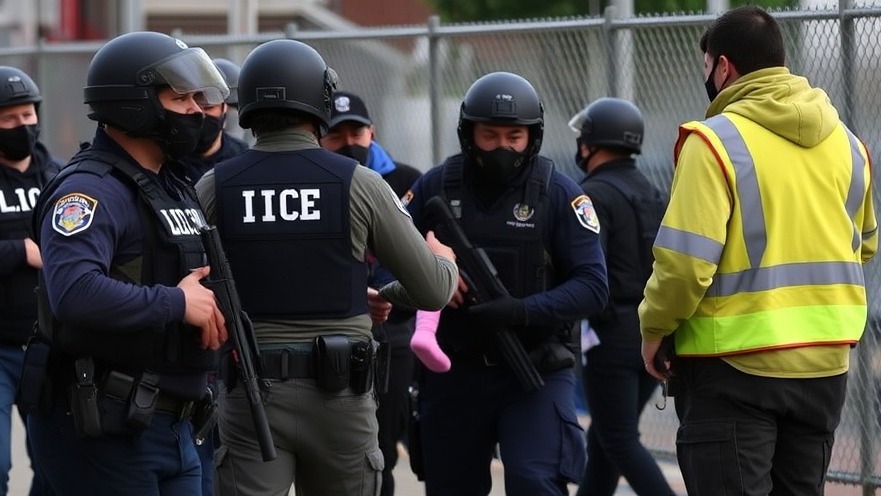
Understanding the Masked ICE Agents
Across the United States, a startling trend has emerged: immigration officers, particularly those from ICE, are now routinely conducting raids with their faces covered. This unsettling image has quickly evolved into a symbol of the current administration's stringent immigration policies as the Trump administration prepares for mass deportations.
The Symbolism and Public Reaction
The sight of masked agents evokes a broad spectrum of emotions among the public. On one hand, supporters argue that the masks are essential for the safety of agents who face real dangers in the field. They highlight the threats—both in person and online—that enforcement officers encounter regularly. ICE officials, such as Acting Director Todd Lyons, emphasize the necessity of these precautions, stating, "I'm sorry if people are offended by them wearing masks, but I'm not going to let my officers or their families be put at risk just because people don't like immigration enforcement." However, this position is met with fierce opposition from critics, who assert that masked agents strip away the accountability that is vital in law enforcement.
Accountability and Law Enforcement
In light of recent events, many experts argue that allowing law enforcement officials to operate without visible identities could have detrimental effects on community relations and public trust in the police. Tobias Winright, a former police officer and moral theology professor, warns, "When the police hide their identities, it takes away accountability. If you're doing the right thing, why hide your face?" This sentiment reflects a growing concern among many about the implications of diminished transparency in law enforcement operations.
Cultural Context of Masked Figures
The imagery of covered faces draws upon deeper cultural narratives. The association of masks with criminality permeates American media—masked figures are often depicted as robbers or anonymous vigilantes. This cultural backdrop raises eyebrows regarding law enforcement officers using similar tactics while performing legal duties. As such, the masks worn by ICE agents raise significant questions about public perception and the role of law enforcement in society.
Political Implications and Perceptions
Political discourse surrounding mask-wearing has shifted dramatically, especially in the aftermath of the COVID-19 pandemic. President Trump and many of his supporters have critiqued mask mandates, viewing them as symbols of government overreach. However, their current endorsement of masked agents sends a mixed message to the public. Critics label this inconsistency as hypocrisy, highlighting the dangers of prioritizing safety over accountability. This juxtaposition raises essential questions about how laws and public safety narratives are being shaped as the administration navigates contentious immigration policies.
A Growing Trend or a Temporary Measure?
The increase in masked immigration enforcement actions poses broader implications for American policing. As these actions become more commonplace, the concern is not just about the agents on the ground, but about the values that are increasingly being associated with policing practices. Public demand for transparency may not be enough to counteract this trend unless there is a concerted effort to establish consistent rules regarding agent identification. The presence of these masked officers during raids adds to a complicated narrative surrounding immigration enforcement in America.
Transparency, Trust, and the Future
Ultimately, the use of face coverings by ICE agents raises critical discussions around expectations for law enforcement. Citizens are left to grapple with the significant implications this holds for police transparency and accountability moving forward. In a time where many are advocating for more openness and reform within policing, it remains to be seen how these decisions will impact the public's trust—or distrust—in law enforcement.
As this conversation develops, Americans are encouraged to reflect on the kind of law enforcement culture they wish to support, as the actions of masked agents will continue to shape the narrative surrounding immigration policies and law enforcement practices well into the future.
 Add Element
Add Element  Add Row
Add Row 



Write A Comment